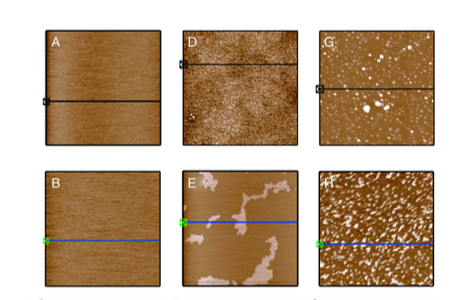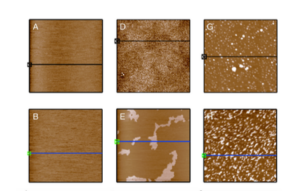Femmes et sciences : l'Université de Tel-Aviv montre que le petit-déjeuner est essentiel pour les diabétiques

[:fr]Une nouvelle étude menée sous la direction des Profs Daniela Jakubowicz et Julio Wainstein de la Faculté de médecine de l’Université de Tel-Aviv, avec la participation du Pr Oren Froy de l’Université hébraïque et le Prof. Ben Aaron de l’Université de Lund en Suède révèle que les diabétiques de type 2 qui sautent le petit déjeuner souffrent de pics de glycémie dangereux pendant toute la journée. L’étude a été menée en collaboration avec le Centre pour le diabète de l’Hôpital Wolfson. « De nombreuses études en Israël et dans le monde ont déjà montré l’importance du petit déjeuner pour la santé, mais jusqu’à ce jour personne n’en avait examiné l’effet sur la population des diabétiques en particulier » explique le Pr Jakubowicz. « Dans cette nouvelle étude, nous avons décidé d’examiner l’importance du petit-déjeuner pour les patients souffrant de diabète de type 2, c’est-à-dire d’hyperglycémie chronique, par opposition au diabète de type 1, ou diabète juvénile, maladie auto-immune » explique le Dr Jakubowicz.
Un taux de glycémie élevé pendant toute la journée
L’étude a été menée sur deux jours sur 22 diabétiques de type 2 d’un âge moyen de 56 ans, avec un IMC moyen (indice de masse corporelle, qui mesure le rapport entre le poids et la taille) de 28,2 (léger surpoids). Le premier jour, les participants ont bénéficié d’un petit déjeuner nutritif ; le deuxième jour, ils ont jeûné jusqu’au déjeuner. Les autres repas, déjeuner et dîner sont restés les mêmes pendant les deux jours, et comprenaient un menu équilibré composé de laitages, de thon, de pain et d’une barre de granola. Après chaque repas les niveaux de glucose ainsi que différents autres marqueurs ont été vérifiés chez les participants au moyen de prises de sang.

Pr Daniela Jakubowicz
« Les résultats nous ont surpris par leur gravité » commente le Pr Jakubowicz. « Tout au long de la journée au cours de laquelle les patient avaient sauté le petit déjeuner, on a mesuré chez eux des niveaux beaucoup plus élevés de glucose et d’hémoglobine A1C (hémoglobine glyquée) que pendant la journée où ils avaient consommé un petit déjeuner ». Par exemple, on a mesuré un taux moyen de glucose de 268 milligrammes par décilitre (mg / dL) après le déjeuner le jour sans petit déjeuner, et de 192 seulement après le même déjeuner, servi quelques heures après le petit déjeuner.
Les chercheurs expliquent ce phénomène par le fait qu’en absence de petit-déjeuner, les cellules bêta du pancréas, qui produisent l’insuline, auraient le temps d’«oublier» leur rôle essentiel en attendant le déjeuner. Bien qu’elles récupèrent après le déjeuner, il s’agit d’un processus long et progressif. Pendant ce temps, la réponse à l’insuline est minime et retardée, et donc les niveaux de glucose dans le sang restent élevés tout au long de la journée. En outre, le niveau des acides gras dans le sang augmente en raison du jeûne du matin, et à leur tour, réduisent l’efficacité de l’insuline en abaissant le taux de glucose dans le sang.
« Les conclusions de notre études signifient qu’il n’est pas suffisant pour les personnes atteintes de diabète de type 2 d’observer des repas du midi et du soir équilibrés, ils doivent également commencer la journée par un petit déjeuner nutritif« , conclut le Pr Jakubowicz. « Sans petit déjeuner leur taux de glycémie reste élevé pendant toute la journée, même si les quantités de sucres et d’amidons sont réduits de manière significative pendant les autres repas. »
Les chercheurs prévoient à présent de réaliser une étude similaire sur des patients diabétiques de type 1 traités à l’insuline.
Publication dans la revue Diabetes Care, 17 juin 2015
Dr Sivan Cohen-Wisenfeld pour l’association des Amis de l’université de Tel Aviv, rédactrice de recherche, membre du comité scientifique de Israël Science Info[:en]More and more Americans on-the-go are skipping the « most important meal of the day, » not eating until lunch. This tendency to miss breakfast has already been linked to the growing epidemic of obesity and cardiovascular problems in the US — and it may put the health of diabetics at risk as well.
Very little was known regarding the effect of skipping breakfast on the health of diabetics — until now. A new Tel Aviv University study reveals the substantial impact of skipping breakfast on type-2 diabetics. « Fasting » until noon triggers major blood sugar spikes (postprandial hyperglycemia) and impairs the insulin responses of type-2 diabetics throughout the rest of the day, researchers say.
The study was conducted by TAU’s Prof. Daniela Jakubowicz and Prof. Julio Wainstein of the Wolfson Medical Center’s Diabetes Unit, Prof. Oren Froy of the Hebrew University of Jerusalem, and Prof. Bo Ahrén of Lund University in Sweden. It was recently published in Diabetes Care and presented at the American Diabetes Association meeting in Boston in June 2015.

Prof Daniela Jakubowicz
The most important meal for diabetics?
« Despite the fact that many studies have previously demonstrated the benefits of a high-caloric breakfast for weight loss and to regulate the glucose metabolism, very little was known regarding the effect of skipping breakfast on glycemic spikes after meals throughout the entire day, » said Prof. Jakubowicz. « It is quite remarkable that, for type-2 diabetic individuals, the omission of breakfast is associated with a significant increase in all-day blood sugar spikes and of HbA1C, which represents average blood glucose levels over the preceding three months. »
The clinical study was conducted on 22 type-2 diabetics who averaged 56.9 years old, with a mean Body Mass Index of 28.2 kg/m2. Over the course of two days, the participants consumed precisely the same number of calories and the same balanced meal — milk, tuna, bread, and a chocolate breakfast bar — for lunch and dinner. The only difference was that one day they ate breakfast and the second day they fasted until lunch.
« We theorized that the omission of breakfast would not be healthy, but it was surprising to see such a high degree of deterioration of glucose metabolism only because the participants did not eat breakfast, » said Prof. Jakubowicz. The researchers found that participants experienced extraordinary glucose peaks of 268 mg/dl after lunch and 298 mg/dl after dinner on days they skipped breakfast, versus only 192 mg/dl, and 215 mg/dl after eating an identical lunch and dinner on days they ate breakfast.
« This means that reducing the amount of starch and sugars in lunch and dinner will have no effect on reducing elevated glucose levels if diabetic individuals also skip breakfast, » said Prof. Jakubowicz.
Improving the « memory » of beta cells
According to the researchers, pancreatic beta cells which produce insulin lose their « memory » due to the prolonged period between one evening’s dinner and the next day’s lunch. In other words, they « forget » their vital role. Therefore it takes additional time after lunch for the beta cells to recover, causing small and delayed insulin responses and resulting in an exaggerated elevation of blood glucose levels throughout the day. Another factor is that fasting until lunch increases the fatty acids in our blood, which renders insulin ineffective in reducing blood glucose levels.
« In light of our study, we highly recommend that type-2 diabetics not skip breakfast, because it causes major damage to the beta cell function and leads to high sugar levels, even if they don’t overeat at lunch and dinner, » said Prof. Jakubowicz. The researchers are planning to conduct a similar study on type-1 diabetics, who require daily insulin treatment.
Publication in Diabetes Care, June 17 2015
Dr Sivan Cohen-Wisenfeld for Tel Aviv University association, research writer, member of scientific commitee of Israël Science Info[:]







